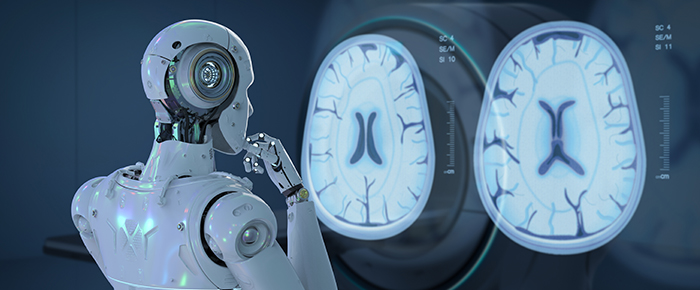
AI Emerges as a Game-Changer in Medical DiagnosticsAI Emerges as a Game-Changer in Medical Diagnostics Artificial intelligence (AI) is rapidly transforming the healthcare landscape, and its impact on medical diagnostics is nothing short of revolutionary. AI-powered tools are revolutionizing the way healthcare providers detect, diagnose, and treat diseases. Enhanced Accuracy and Early Detection AI algorithms can analyze vast amounts of medical data, including patient records, lab results, and imaging scans, with unprecedented speed and accuracy. This enables earlier detection of diseases, even those that may not present with obvious symptoms. By identifying patterns and detecting subtle changes, AI algorithms can help healthcare providers identify high-risk patients and prioritize early interventions. Personalized Treatment Plans AI can assist in tailoring treatment plans to individual patients. By analyzing patient-specific data, AI algorithms can identify the most effective treatment options based on factors such as age, medical history, and genetic profile. This personalized approach optimizes treatment outcomes and reduces the risk of adverse effects. Accelerated Drug Discovery and Development AI is playing a crucial role in drug discovery and development. AI-powered systems can analyze vast databases of biological and chemical data to identify potential drug targets and predict their efficacy and safety. This accelerates the development of new drugs and reduces the time and cost of clinical trials. Remote Patient Monitoring AI-enabled wearables and sensors allow for real-time monitoring of patients’ health data. These devices can track vital signs, sleep patterns, and activity levels, providing healthcare providers with a continuous stream of information. This enables remote monitoring of patients with chronic conditions or those at risk for complications, allowing for timely interventions and improved outcomes. Improved Access to Healthcare AI can bridge the gap in healthcare access by providing diagnostic services in underserved communities. Remote AI-powered diagnostic tools can be deployed in remote locations or used by patients at home, reducing barriers to access and improving overall health outcomes. Challenges and Considerations While AI offers immense potential in medical diagnostics, it also raises certain challenges. Ensuring data privacy and security is crucial, as vast amounts of sensitive patient information are processed by AI systems. Additionally, the ethical implications of using AI in healthcare, such as potential biases, need to be carefully considered. Conclusion AI is transforming the field of medical diagnostics, enhancing accuracy, personalizing treatment, accelerating drug development, and improving access to healthcare. As AI continues to evolve, it promises to revolutionize the way we detect, diagnose, and treat diseases, leading to improved health outcomes for all. By embracing AI responsibly and addressing the associated challenges, healthcare providers can harness its transformative power to create a more effective, accessible, and equitable healthcare system.
Posted inNews